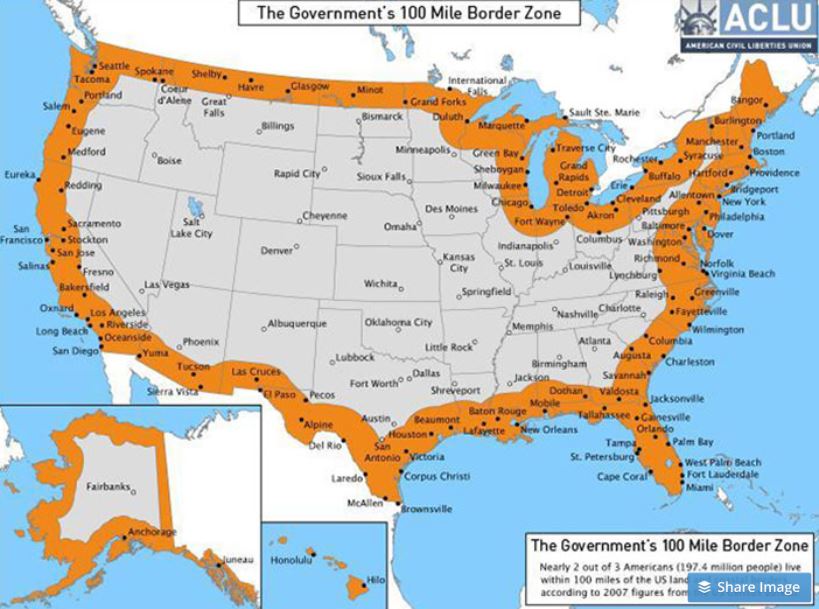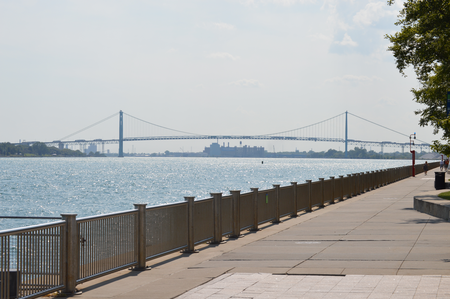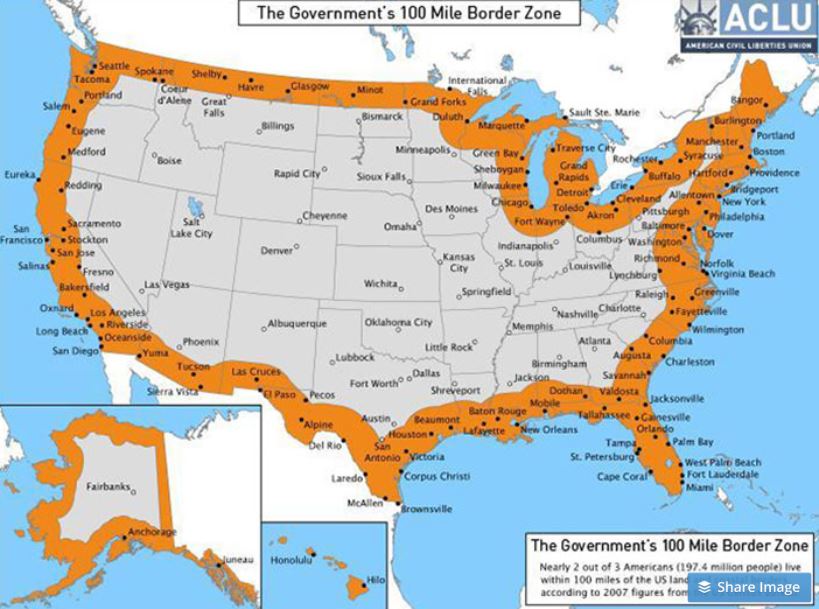Living in Michigan May Mean You Have Fewer Rights
All of Michigan falls in the U.S. “border zone,” which some critics call a “Constitution-free” zone.


The entire state of Michigan falls in a special zone that gives federal agents wide discretion to stop, question and detain people they suspect of committing immigration violations. They can enter private property, set up highway checkpoints, and can use race and ethnicity as factors in their decision-making.
That’s because all of Michigan falls in what’s called the United States “border zone.” See a map of the zone below.
But it actually has little to do with the border itself. Most densely populated areas in the United States fall within it because it extends into nearly every major metropolitan area. In fact, more than 65% of all Americans live in the border zone.
Which raises a few questions. What does this mean for civil liberties? And is the border zone designation really just a proxy for harassment — particularly of people of color?
“The reasoning behind it is that it’s to monitor and intercept illegal immigrants who have bypassed the checkpoints at the border itself,” says Tanvi Misra, staff writer with CityLab covering immigrant communities, housing, economic inequality, and culture.
Misra recently wrote a piece in CityLab titled, “Inside the Massive U.S. ‘Border Zone.’”
She says this is part of a post-9/11 mentality that “in favor of protecting the U.S. from threats that are coming from outside of it, there are certain suspensions of rights inside of it as well.”
“What actually happens in reality is (agents) act like the Constitution does not apply, when it still does,” says Juan Caballero, attorney and West Michigan legal fellow with the American Civil Liberties Union of Michigan. “It certainly is a major problem.”
Click here to see more of ACLU’s work regarding the ‘border zone.’
Henderson also speaks with Diego Bonesatti, legal services director with Michigan United, a group that advocates for immigrants rights here in Michigan.
“There’s a lot of fear (in immigrant communities),” says Bonesatti. “They don’t know what’s going to happen next.”
Click on the audio player above to hear the full conversation.

